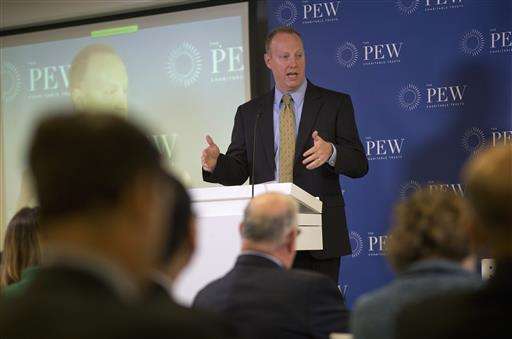Medicare weighs changes to controversial plan on cancer meds

Trying to salvage a controversial experiment to confront rising drug costs, the Obama administration Tuesday hinted at modifications to an ambitious plan that would revamp Medicare payments.
Affected are those medications administered in a doctor's office. That includes most chemotherapy drugs, as well as injected and infused drugs for macular degeneration, rheumatoid arthritis, some immune diseases and other conditions. Cancer doctors want the administration to tear up its proposal.
Choosing his words carefully, Medicare Deputy Administrator Patrick Conway told the Senate Finance Committee his agency is looking closely at comments it has received, and officials will determine if any adjustments are needed before the plan is finalized. He said the areas Medicare is reviewing include the nationwide scope of the experiment, and its impact on rural areas and small medical practices.
At Tuesday's hearing Conway faced a solid wall of criticism from Republican senators who want Medicare to withdraw the proposal. He got no help from Democrats, who have raised their own concerns, while stopping short of demanding that the administration pull the plug.
"One of the most difficult things to do in Congress is unite Republicans and Democrats on a topic ... and this demonstration project has done a very good job," observed Sen. Tim Scott, R-S.C.
Committee chairman Orrin Hatch, R-Utah, called the experiment "ill-conceived and likely to harm beneficiaries."
Medicare now pays doctors and hospital outpatient clinics the average sales price of a drug, plus a 6 percent add-on. Since 6 percent of a $15,000 drug is more than 6 percent of a $3,000 drug, some experts believe the formula influences doctors' prescribing decisions.
The new formula would combine a 2.5 percent add-on with a flat fee for each day the drug is administered. A control group of doctors and hospitals would continue to be paid under the current system.
Opponents say smaller, doctor-owned clinics may no longer be able to afford the upfront costs of cutting-edge medications. If that happens, cancer patients will be forced to go to outpatient hospital clinics instead of their local specialist for the latest drugs. In rural areas, patients may have to travel long distances to get to a hospital clinic.
Supporters of the proposal, including consumer groups and primary care doctors, say critics are trying to scare beneficiaries.
Medicare's spending on doctor-administered "Part B" drugs has been growing by more than 8 percent a year, reaching an estimated $22 billion last year.
The experiment could become permanent policy if it lowers costs while maintaining quality. A second wave of experimentation would try to link what Medicare pays for a given drug to how well it works.
But Democratic Sen. Tom Carper of Delaware questioned why Medicare wants up to 75 percent of the country to be involved. "Why such a large, expansive demonstration?" he asked.
"I am concerned the scope of the current proposal seems broader than is typical of a demonstration project," said Sen. Debbie Stabenow, D-Mich.
Republican senators said Medicare is trying to disguise a policy change as an experiment.
With months left in office, the Obama administration will have to move quickly to make the Medicare payment change part of the president's health care legacy. Opponents in Congress, however, would still have options, including a vote to disapprove of the regulation.
© 2016 The Associated Press. All rights reserved.


















